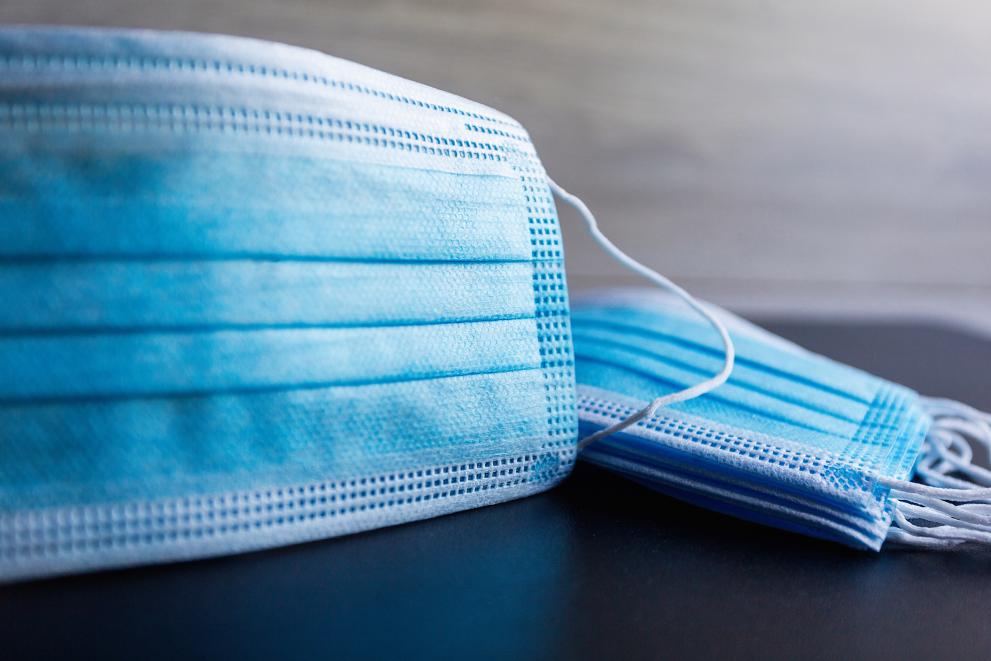
Disposable face masks are a tool to prevent the transmission of SARS-COV-2 in the ongoing COVID-19 pandemic, and are also used to prevent other aerosol inhalation exposures, for example from mould clean-up after flooding or air pollution from wildfire smoke. However, the waste generated from using these masks only once before disposal is causing a significant environmental plastic pollution problem, with sales globally having increased 200 times since the start of the pandemic.
Plastic production and littering of plastic face masks, can cause human exposure to toxic chemicals with potential hormone disrupting effects, and neurotoxicity. Nevertheless, the ongoing emergence of SARS-COV-2 variants and increase in the frequency of extreme air pollution exposure, from wildfires for example, means that plastic masks are likely to continue to be needed.
Single use plastic masks are more effective than cloth reusable masks, due to the electrostatic nature of the plastic filter material – which traps submicron level particles more effectively. So, if the useable life of disposable masks is extended beyond one 8-hour wear without substantial detrimental effects on their effectiveness, this would help mitigate the global plastic waste problem significantly and the human exposure to toxic chemicals caused by their production and littering. Europe is committed to reducing the amount of plastic entering the environment, with a directive on single use plastic1 introduced in 2021, amongst other measures.
The researchers assessed the fitted filtration efficiency (FFE) of four types of single use face masks – ear-loop non-medical procedure mask, KN95 mask, KF94 mask and an N95 respirator – the masks were compared after extended wearing, with and without washing. Six volunteers wore the masks inside an exposure chamber supplemented with aerosolised salt (NaCl) particles, following test procedures, i.e., bending at the waist, reading out loud, and moving their head. During these exercises, two particle counter machines measured behind mask and in chamber counts used to calculate FFE (a formula based on the number of particles recorded behind the mask divided by the number in the chamber). The study comprised three experiments:
- wear and wash: facemasks were tested for FFE after 0, 8, 16 and 24 hours of wear, with machine washing after each full day;
- wash only: FFE was assessed with the facemasks subjected to 0-2 washes; and
- wear only: facemasks were tested up to 40 hours of wear. Each 8-hour wear period comprised a single weekday, with volunteers doing everyday activities in that time period.
Statistical analysis of the results was conducted to note trends in FFE degradation for different experiment and mask types. The results of the experiments, and subsequent analysis, showed that, without washing, most disposable facemasks retain a high level of their baseline performance, even after 40 hours of wear. Machine washing however was found to degrade facemask FFE after only one or two washes; this likely reduced electrostatic properties (which attracts/traps small particles). Overall, this mirrors earlier findings that N95 respirators can provide adequate protection against aerosol inhalation exposure after three days of wear.
The researchers conclude that the durability of disposable facemasks beyond their intended single use suggests that they can be reused safely to reduce plastic waste in the environment. Furthermore, factors influencing extended wear such as design, construction and material quality can influence sustained filtration. For example, the KN95 facemask improved slightly in FFE after being worn – likely due to the decreased rigidity of the nosepiece allowing better fit and seal along facial contours after wear.
Footnotes:
- Directive (EU) 2019/904 of the European Parliament and of the Council of 5 June 2019 on the reduction of the impact of certain plastic products on the environment, available: https://eur-lex.europa.eu/legal-content/EN/LSU/?uri=CELEX:32019L0904
Source:
Chen, H., Samet, J. M., Tong, H., Abzhanova, A., Rappold, A. G., and Prince, S. E. (2022). Can disposable masks be worn more than once? Ecotoxicology and Environmental Safety, 242: 113908. Available from: https://doi.org/10.1016/j.ecoenv.2022.113908
To cite this article/service:
“Science for Environment Policy”: European Commission DG Environment News Alert Service, edited by the Science Communication Unit, The University of the West of England, Bristol.
Notes on content:
The contents and views included in Science for Environment Policy are based on independent, peer reviewed research and do not necessarily reflect the position of the European Commission. Please note that this article is a summary of only one study. Other studies may come to other conclusions.
Details
- Publication date
- 29 March 2023
- Author
- Directorate-General for Environment

